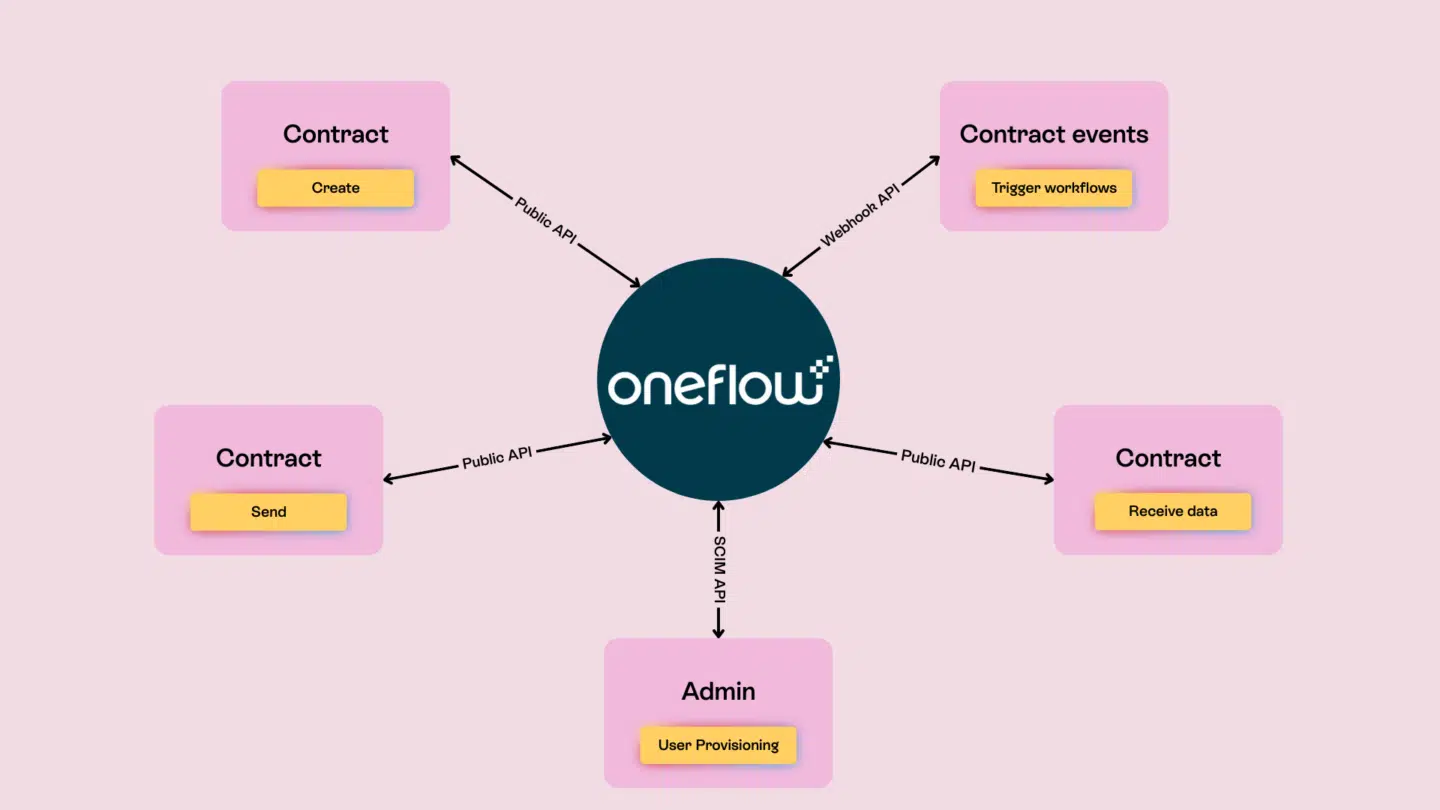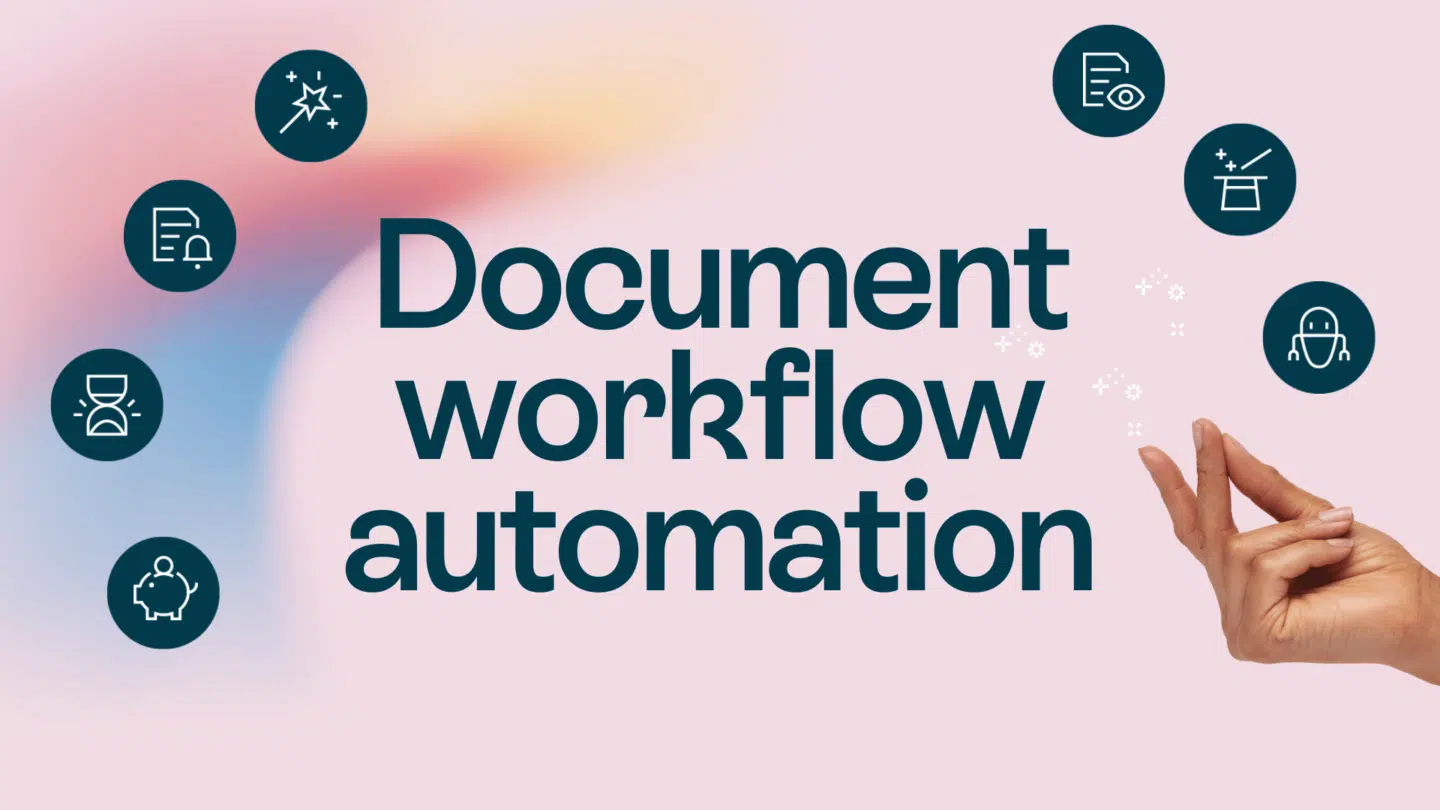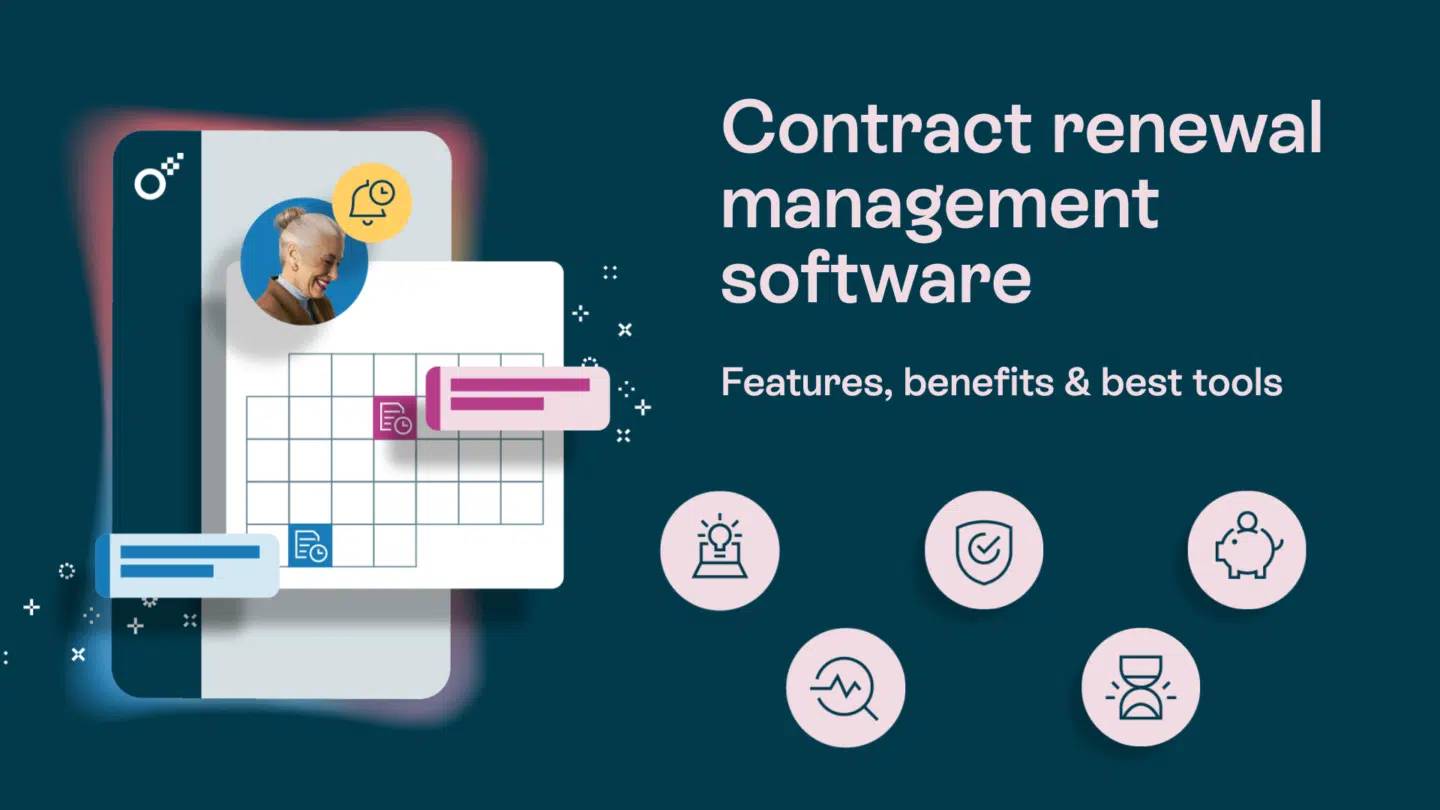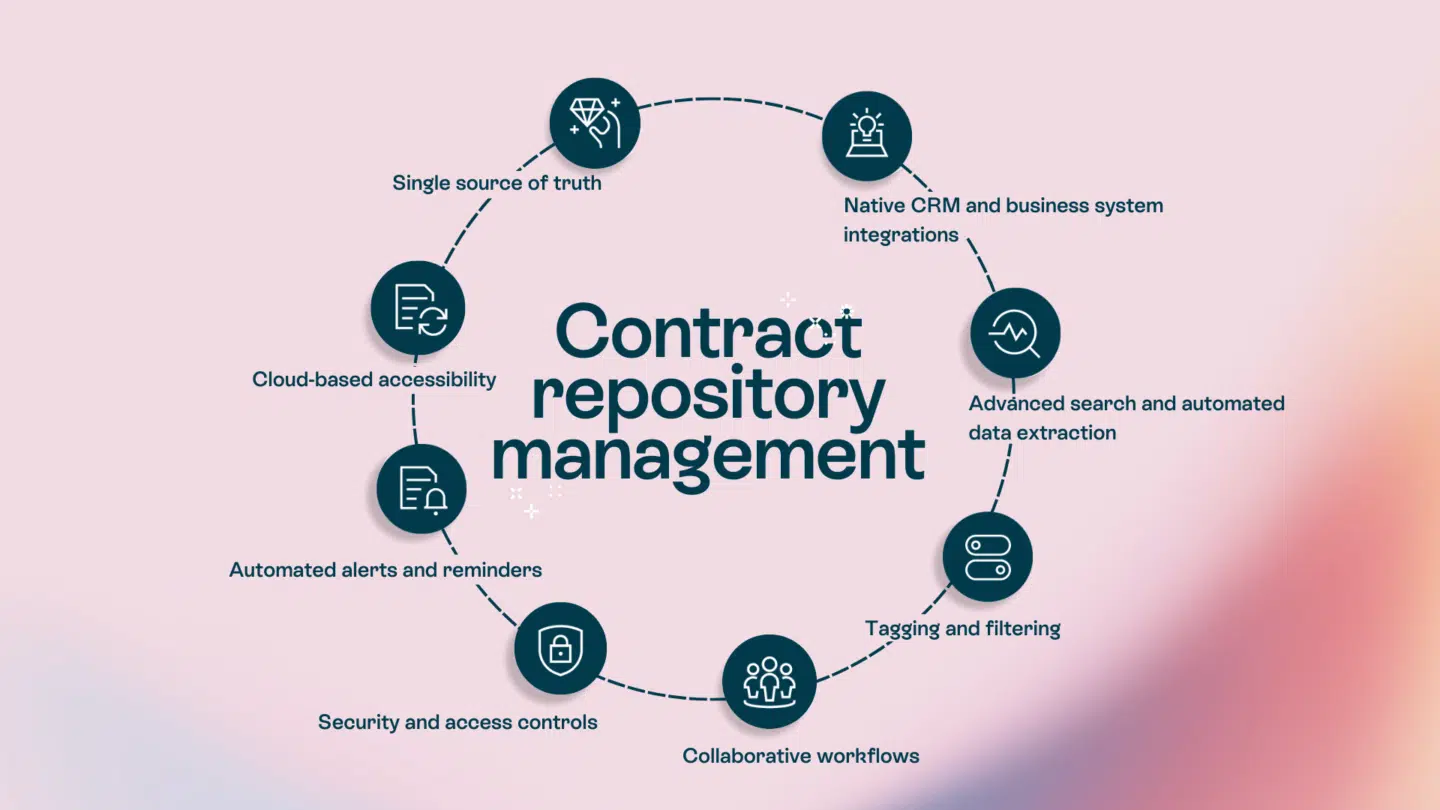Your store is buzzing. You’re hiring new staff. Deliveries are delayed. Campaigns need to go out. And right in the middle of all that: contracts. Lease agreements, employment contracts, supplier deals, partnership agreements – the list goes on. When contract management isn’t in order, things quickly get messy. And it’s not just an admin headache. It actually impacts your profitability more than you might think.
In this article, we’ll dive into why contract management in retail is often a blind spot – and how you can turn that into a competitive advantage.

Why retail often lags behind
Retail moves fast. It’s a high-paced industry with seasonal swings and frequent staff turnover. Many companies spend a lot of time fine-tuning logistics, procurement, and customer experience – but forget about the administrative engine running behind it all.
And when they finally take a closer look? They often find manual processes, locally saved files, printed documents, endless email threads, and old contracts that everyone forgot about. Nothing against Excel – but it’s not a contract system.
With a modern contract platform where every agreement is handled digitally from start to finish, all of that disappears. Everything’s stored in one place, searchable and easy to manage. So you can focus your time where it really counts.
Four common mistakes in contract management
1. Documents are located in different places
It’s common for contracts to be scattered across inboxes, personal laptops, cloud drives, servers – or even tucked away in binders at the store. When it’s time to find one, it can feel like searching for a needle in a haystack.
The result? You lose time, lose visibility, and risk missing important deadlines.
Choose a tool where everything’s in one place – searchable, structured, and accessible to everyone who needs it.
2. Unclear areas of responsibility
Who’s responsible for drafting, reviewing, signing, and following up on a contract? Without clear processes or system support, it’s easy for things to slip through the cracks.
The result? Contracts end up stuck in limbo. Or worse – the wrong people approve them.
With Oneflow’s workflows and roles, it’s crystal clear who does what – and when.
3. Forgotten or expired agreements
Many companies miss the deadline to cancel contracts – especially when it comes to store leases or license agreements. That can leave you stuck with unnecessarily expensive terms.
The result? You end up overpaying. Sometimes for years before anyone even notices.
Make sure your tool sends automatic reminders before contracts expire, so you have time to take action.
4. Lack of traceability
When an agreement needs to be reviewed retrospectively – during a dispute or audit, for example – it’s crucial to be able to trace its history. With manual processes, that’s often impossible.
The result? You’re at a disadvantage in negotiations and disputes.
Your tool should automatically log everything: who did what, when, and how. Make sure you have a clear audit trail – without all the manual effort.
Läs även:

Hidden costs that no one budgets for
The tricky thing about poor contract management is that the costs don’t always show up right away. But they’re there – quietly eating into your margins. Here are a few examples:
- Time spent on admin – According to a report from World Commerce & Contracting, companies spend an average of 18% of their time managing contracts manually.
- Missed deadlines and renewals – Missing a termination date can mean a lease auto-renews – often with worse terms.
- Invalid or incorrect contracts – Agreements that lack proper signatures or don’t hold up legally can become expensive liabilities in a dispute.
- GDPR risks – Contracts with personal data must be handled securely. Paper in binders rarely meets the standard.
Oneflow is built to reduce these risks – with top-tier security, version control, signing logs, and simple access management.
How digital contract management is turning the tables
So what happens when you switch from manual to digital contract management? Here are a few real-world results:
Full control and searchability
All your contracts are stored in one place. You can search by content, parties, dates, or tags – just like you would in your inbox or on Google.
With Oneflow’s dynamic contracts, you can edit agreements in real time, even after they’ve been sent, without creating new versions.
Reminders and automatic flows
The system reminds you before a contract expires or needs renewal. You can set up automated approval flows. Nothing slips through the cracks.
Oneflow makes it easy to set rules and deadlines for every type of contract – so you stay in control without keeping it all in your head.
Smoother signing
With e-signing, both you and the counterparty can sign straight from a phone or computer. What used to take days now takes minutes. And yes – it’s legally binding.
Of course, Oneflow supports BankID and other secure signing methods – so you can feel confident, no matter the type of contract.
Insight and analysis
You get full visibility into contract data – like terms, costs, and expiration dates – making it easier to plan ahead and negotiate smarter.
Oneflow even gives you dashboards where you can see all your contracts at every stage – from draft to signed and archived.
A real-life example
Imagine a retail chain with 20 stores. Each one has its own lease, different contracts with cleaning companies, security providers, and international staffing agencies. Add employment agreements, partner contracts, licenses, and campaign collaborations – and you’re suddenly managing hundreds of contracts.
Without a proper system:
- Several leases renew automatically, even though the stores aren’t turning a profit.
- Supplier contracts are inconsistent, with no visibility into which discounts apply.
- Seasonal hires are left waiting days to start because the contract needs to be printed, signed, scanned, and sent back.
With digital contract management – like Oneflow:
- One person can oversee the entire contract landscape.
- No more surprises.
- New hires can sign their employment contracts on their phone – before they even step into the store.
What does research say about contract management in retail?
According to McKinsey, digitizing the contract process can cut the time it takes to finalize an agreement by up to 90%.
And research from Aberdeen Group shows that companies using digital signatures complete contracts 21 times faster than those who don’t.
It’s not just about efficiency – it’s about competitiveness
Retail is a tough game. Margins are thin. Customer expectations are high. The ones who manage to save time, reduce risk, and work smarter gain a real edge.
Digitizing contract management isn’t a “nice to have” anymore. It’s a must for anyone who wants to stay ahead.
And with a solution that handles the entire contract lifecycle – from creation to archiving – it becomes both simple and powerful.

Next steps – what can you do now?
If any of this sounds familiar, it might be time to take a closer look at how you’re managing contracts today. Ask yourselves:
- Do we know exactly where all our contracts are stored?
- Are we on top of expiration dates and notice periods?
- How long does it take to get a contract signed?
- How much manual work is involved?
Oneflow ticks these boxes
Oneflow is a platform for digital contracts – from creation to signing and follow-up. It’s built for modern businesses that want to work smarter, faster, and more securely.
Want to see how it works in practice?
Book a demo or explore Oneflow yourself.
Summary
Manual contract management may not seem like the biggest problem in your daily life. But that’s often where the leaks are – in time, money and risk. With a digital solution, you get better control, save resources and reduce headaches.
And the best part? It’s easier than you think to get started – especially with a tool that’s actually built to make it easy.






